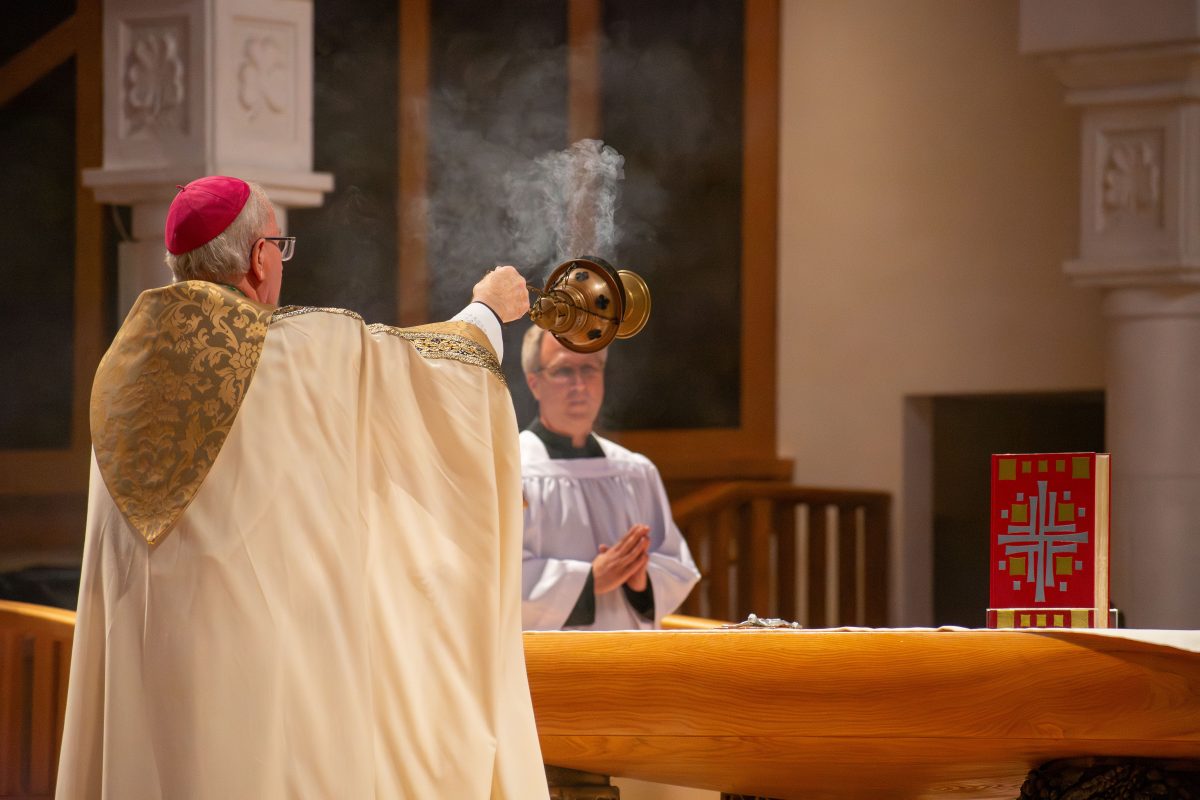Beloved Sisters and Brothers in Christ,
As I write this, I know you will read it close to the date of my 20th episcopal anniversary, Aug. 24, 2005. God blesses me with each one of you and all the people whom I have been called to serve in His name. I praise Him for the gift of you and pray with gratitude for the priesthood He has given me.
The Scripture of this 21st Sunday in Ordinary Time speaks about and addresses all God’s people. Every person — no matter the land, language, race, or economic status — is a treasure from God for He breathed His life into each one of us that we might serve Him. Jesus reminds us that “some are last who will be first and some are first who will be last” (Lk 13:30). He is telling me and you that God’s discernment surpasses our worldly eyes. We are called to live in such a way that the glory of His service is known and desired throughout the earth.
You and I have a unique charge, one that flows against the political or secular language of the day. As we read Scripture, we note that God does not reserve His love for certain people. We know that Jesus kept company with the meek and lowly, with those who had fallen away from God, with those who were in the margins, that He might lead them to His heavenly Father. He anointed the apostles and His disciples to do the same.
Today, there are many things and events that unsettle the heart of God. For many years, we have spoken about immigrants, labeling them illegal aliens or aliens, the meaning of which describes someone unsuitable for this earth. Yet, as we read God’s Word, we know that we are part of His Body, creating His dwelling place with one another for all time. When we begin to label people, we also begin to separate them from us. The one who is labeled becomes the outsider, unworthy of God’s compassion and tenderness.
On this Sunday, and during the week, you and I participate in the celebration of Mass, where we come to God’s heavenly table and receive Jesus the Eucharist. Each time, we rejoice that God comes to dwell in us. Filled with His life, there is only one next action — to love and serve the Lord and one another. We are in communion with Christ for our neighbors, not just the ones whom we choose, but all people because God chooses all.
When our hearts are rooted in Christ’s love and our foundational truths are grounded, we can then assess God’s justice. Our Catholic teaching is clear: human dignity is not lost, even in sin. Every person deserves compassion, and God walks through, with and in us to be His Presence to the poor and vulnerable.
God calls us to live counter-culturally. Some people are unemployed; we reach out to them to provide sustenance. Others are mentally unstable; we help them find strength from counseling. We read in Scripture of our ancestors who fled from Egypt and entered each land as aliens; we reflect upon the Holy Family who fled to Egypt for solace against enemies; and we learn of many of the saints crossing borders to bring God’s Presence to those for whom they were foreigners. Within the confines of our faith, we cannot imagine that any of these would not be welcome.
So, we are called to apply this standard to the immigration of our own time. Bishop Erik Pohlmeier of the Diocese of St. Augustine recently wrote, “The temptation is to begin by justifying stronger efforts to remove those who entered the country illegally. But that cannot be the starting point for Christians. Jesus commands us to see the person first, then consider laws that allow the person to thrive.”
If we see the person first, I believe we will be introduced to a person of dignity born by God. In that, we will prayerfully minister to each one as best as possible, as we would to the Holy Family as they were distraught in their own flight.
My sisters and brothers look beyond the issue, no matter what the rhetoric of the day. See God’s people. How are we called to bring forth His sacrificial love? How are we called to be Eucharist to one another? May we be known to welcome all to recline at God’s table.

